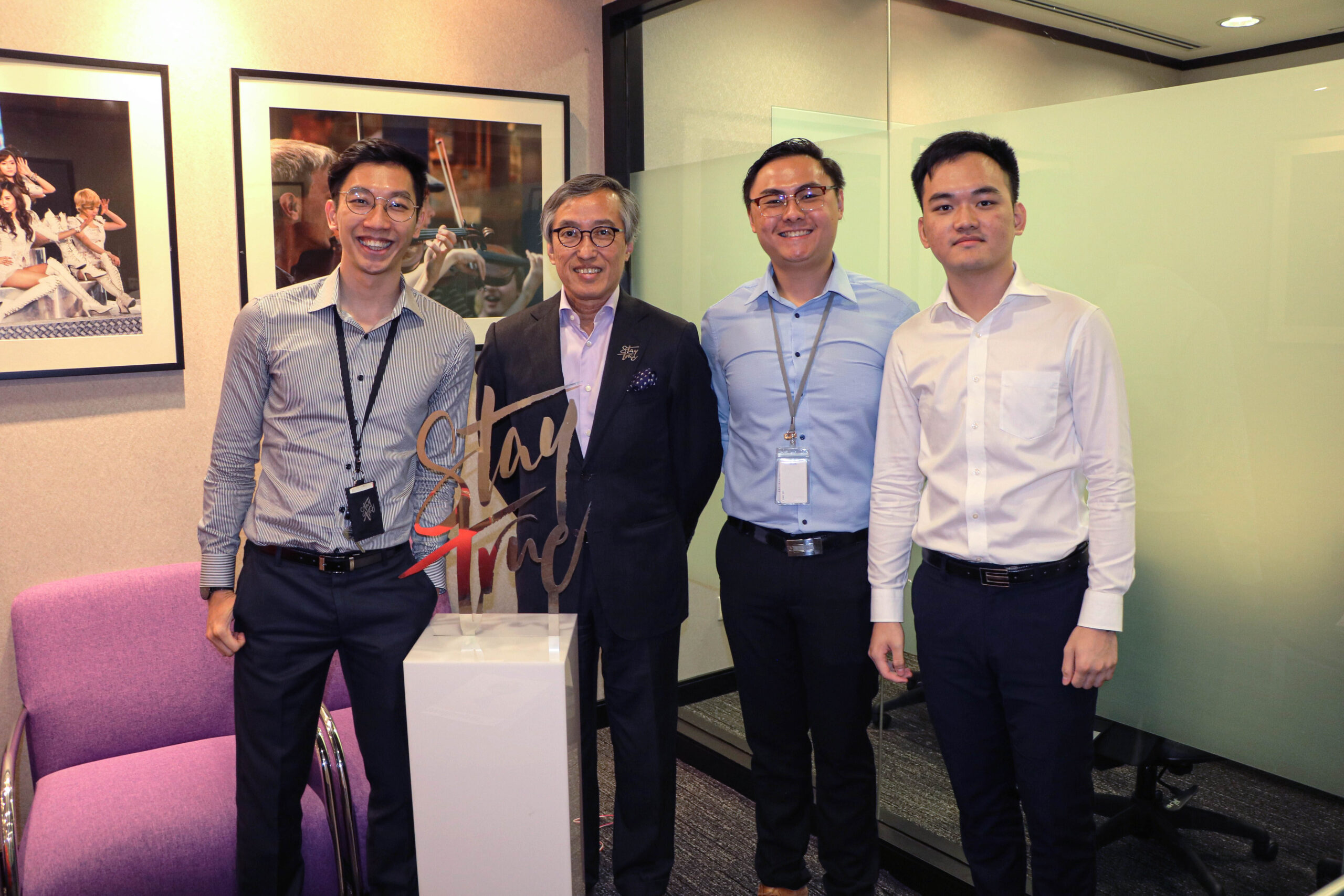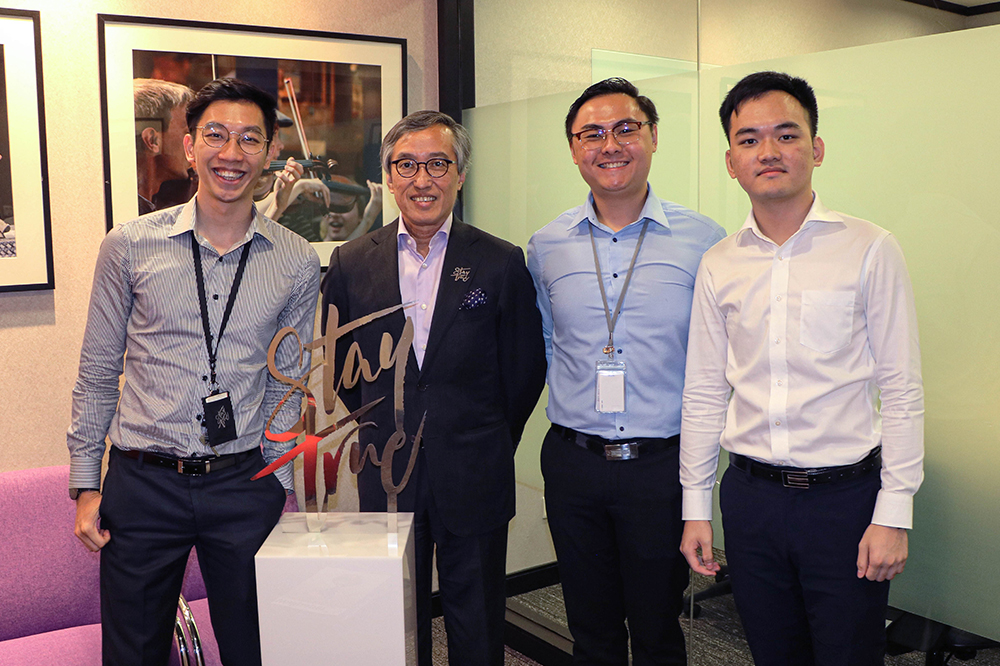Wei Hong was appointed the Chief Operating Officer of Oversea-Chinese Banking Corporation (OCBC) since April 2012 and has been its Head of Global Consumer Financial Services since May 2010. He also currently serves as the Chairman of Bank of Singapore, OCBC Securities, and NETS Group; as well as Deputy Chairman of Lion Global Investors. In his capacity as COO of OCBC Bank, he is responsible for the Global Wealth Management and Consumer Division, focusing on building the OCBC Group’s consumer banking franchise and wealth management business in its key markets in Asia. Wei Hong also oversees Group Customer Experience and OCBC Bank’s fintech and innovation unit, The Open Vault at OCBC.

Alumni Spotlight Stories: Ching Wei Hong

In his tenure with OCBC Bank, he has held senior management responsibilities across various roles including Chief Financial Officer, Head of Group Operations and Technology and Head of Transaction Banking. Wei Hong has more than 35 years of experience in regional finance, corporate banking and cash management. Before joining OCBC, he was Director of Corporate Finance, Philips Electronics Asia Pacific. He also held senior regional assignments in Bank of America and was Treasurer of Union Carbide Asia Pacific.
Q: Could you share with our readers your motto in life? And a summary of your daily life at work?
I believe there are three key underlying factors necessary for one to succeed – passion, commitment, and hunger. Having the passion to do something you are interested in, being committed in the long run, and always being hungry for knowledge and success. I also believe that change is constant, and one must be willing to move out of the comfort zone and to seek the opinions of subject matter experts with humility. Learning is a lifelong commitment.
I begin my day at 8.00am with a catch up on global news that happened in the past 24 hours. It is crucial to be aware of the latest developments in the global markets for making timely decisions. As for managing my work schedule, I first review the issues at hand and formulate my thoughts. Thereafter, I prioritise the items in my “to do” list and prepare for my upcoming meetings.
Q: What were your aspirations?
I graduated in 1983 and chose to skip my honours year as I was determined to start working and contributing to my family. I saw my father’s drive to support my large family, and I wanted to ease his workload by entering the workforce early.
Back in those days, there were not many structured internship programmes. Fortunately for me, I managed to find some work as a contract staff with a consumer research company whilst completing my undergraduate studies. My part time role as a consumer surveyor saw me conducting product and brand surveys, which not only gave me insights into customer research and analytics, but also shaped my working foundation. Upon graduation, I landed myself a job at Bank of America (BOA). My selection of the company then was based on its philosophies for training and people development. I was eager to join BOA when the recruiters invited the alumni to share about their experiences. They provided good insights into BOA’s culture and operations and that attracted me.
My aspirations then were to grow with the organisation and advance towards a management position. To track my own progress, I was conscious about benchmarking myself against my peers. This gave me an indication of my performance, and ensured I was on the right track.
As a leader, I appreciate honest feedback and open debate amongst colleagues
Q: When did you think that it was time to move to a new environment?
I think the time to move is when you start to feel too comfortable. I left BOA after a good eight years when the opportunity to develop myself further came. I was offered a regional treasury management role by one of the bank’s MNC clients, and it was a learning opportunity that would expand my horizons tremendously. The role gave me new exposure to corporate treasury systems beyond Singapore as it was a Pan-Asia regional role. It was a steep learning curve as I was exposed to different financial regulations and tax regimes in different markets. I had to balance between onshore and offshore financing, and needed to understand the complicated tax implications within different regions as well as forex and interest rate hedging.
Q: How did your leadership style change over time?
My leadership style evolved over time through my mentors and the experiences I had. I had my fair share of good and bad managers, but there were always lessons to be learnt from all of them.
One fantastic mentor I had was a Mexican-American boss who helped me to develop my quest for knowledge. He encouraged me to read voraciously and expose myself to different types of knowledge and cultures. Through him, the concept of adaptability was ingrained in me. In addition, he showed me how one needs to make swift decisions at times, and remain committed to high conviction choices. He also taught me the importance of people and relationships, and that no matter what, family always comes first.
Of course, not all leaders are charismatic and I had leaders that led in a Machiavellian manner as well. But through them I picked up the importance of technical and analytical skills, and more importantly I learned to never let myself become like them in terms of people management and work collaboration.
As a leader, I appreciate honest feedback and open debate amongst colleagues. To cultivate that, it is important for the leader to gain trust and respect from the team. I learned that the best way to do so was to walk the talk and to be transparent and fair.
Q: What is your advice for people who are keen to enter the banking industry?
Aside from having basic financial knowledge, understanding the fundamentals of emerging technologies and shifting consumer preferences is key. Given the rapid digital technological changes and fintech disruptions, the banking system of tomorrow will evolve dramatically.
The world with a fixed routine is over. One needs to be adaptable in this new digitalised world as there will always be new challenges and skill sets required. If you get too comfortable with routine work, chances are you will end up being obsolete. Keep an open mind and a never-ending thirst for knowledge, and work on your soft skills as problem solving, teamwork, and good communication will remain key.
The Alumni Spotlight Stories is a weekly series that explores a Bizad alumni’s journey from school to the working world. The story was first published in “Alumni Spotlight Stories: From Student Life to the Peak of your Career” compiled by the NUS Business School Alumni (NUSBSA).


